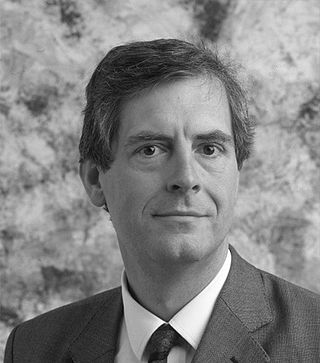Related Research Articles

The Victoria and Albert Museum in London is the world's largest museum of applied arts, decorative arts and design, housing a permanent collection of over 2.27 million objects. It was founded in 1852 and named after Queen Victoria and Prince Albert.

John Sell Cotman was an English marine and landscape painter, etcher, illustrator, and a leading member of the Norwich School of painters.

Alphonse Legros was a French, later British, painter, etcher, sculptor, and medallist. He moved to London in 1863 and later was naturalized as British. He was important as a teacher in the British etching revival.

The Raphael Cartoons are seven large cartoons for tapestries, surviving from a set of ten cartoons, designed by the High Renaissance painter Raphael in 1515–16, commissioned by Pope Leo X for the Sistine Chapel in the Vatican Palace. The tapestries show scenes from the Gospels and Acts of the Apostles and are hung below the frescoes of the Life of Christ and the Life of Moses commissioned by Pope Sextus. The cartoons belong to the British Royal Collection but since 1865 are on loan to the Victoria and Albert Museum in London.

Sir Francis Job Short PPRE was a British printmaker and teacher of printmaking. He revived the practices of mezzotint and pure aquatint, while expanding the expressive power of line in drypoint, etching and engraving. Short also wrote about printmaking to educate a wider public and was President of the Royal Society of Painter Etcher & Engavers from 1910 to 1938. He was a member of the Art Workers' Guild and was elected Master in 1901.

Julian Otto Trevelyan was an English artist and poet.

The Chrysler Museum of Art is an art museum on the border between downtown and the Ghent district of Norfolk, Virginia. The museum was founded in 1933 as the Norfolk Museum of Arts and Sciences. In 1971, automotive heir, Walter P. Chrysler Jr., donated most of his extensive collection to the museum. This single gift significantly expanded the museum's collection, making it one of the major art museums in the Southeastern United States. From 1958 to 1971, the Chrysler Museum of Art was a smaller museum consisting solely of Chrysler's personal collection and housed in the historic Center Methodist Church in Provincetown, Massachusetts. Today's museum sits on a small body of water known as The Hague.
Norman Ackroyd is an English artist known primarily for his aquatint work. He lives and is based in Bermondsey, London.

Dhruva Mistry is an Indian sculptor.

John Reginald Brunsdon ARCA was a British artist, printmaker and painter. He was born in Cheltenham 15 August 1933 and died in Ipswich 13 April 2014.

Sir Mark Ellis Powell Jones is a British art historian, numismatist and museum director. He was Master of St Cross College, Oxford, from 2011-2016. Previously, from 2001 to 2011, he was director of the Victoria and Albert Museum.

George Wallis (1811–1891) was an artist, museum curator and art educator. He was the first Keeper of Fine Art Collection at South Kensington Museum in London.

Sir Christopher Mark Le Brun PPRA is a British artist, known primarily as a painter. President of the Royal Academy of Arts from 2011 to December 2019, Le Brun was knighted in the 2021 New Year Honours "for services to the arts".

Richard Cockle Lucas was a British sculptor and photographer.
David Haughton (1924–1991) was a British artist associated with the St Ives movement. Many of his paintings, etchings and drawings feature aspects of the Cornish landscape, particularly the area around St Just.
Richard Turner, also known as Turneramon, was a British artist and poet.

Richard John Spare is a British artist and Master Printmaker known primarily for his drypoints, etchings and oil paintings. He is based in London.
Wilfred Fairclough was an English artist, engraver and printmaker.
Raymond Teague Cowern was a British painter and illustrator who was an accomplished draughtsman and was elected a full member of the Royal Academy in 1968.
Constance Mary Pott, RE, was an English printmaker and teacher active during the late nineteenth century and the twentieth century. She became technical and teaching assistant to the teacher and printmaker Sir Frank Short at the Royal College of Art from 1902 until Short's retirement in 1924. In her day she was recognized as a pioneer in the etching revival, for her dynamic, versatile mastery of technique and line, for the spacious evocation of landscape in her plates, and for her formal professional occupation, all exceptional achievements by any standards, but more especially so in their combining in her to overcome societal disapproval of professions for women. As a teacher she had a powerful and acknowledged influence upon a whole generation of engravers who passed through the College. However, she long outlived the fashion of that movement, and her central role in it was for a time almost forgotten. Examples of her own works, principally etchings, are held in leading national collections, and appear in the salerooms. She is sometimes confused with her mother, Constance Mary née Fearon, Mrs Henry Pott (1833-1915).
References
- ↑ "Norman Ackroyd, Peter Olley, Shane Weare: Recent Etchings | Exhibitions | The Renaissance Society". The Renaissance Society . Archived from the original on 15 May 2024. Retrieved 15 May 2024.
- ↑ "Peter Olley | Artists | Collection | British Council – Visual Arts". British Council . Archived from the original on 15 May 2024. Retrieved 15 May 2024.
- ↑ "Grinnell College Museum of Art - Death of an Ace". Grinnell College Museum of Art . Archived from the original on 15 May 2024. Retrieved 15 May 2024.
- ↑ "Ascension | Olley, Peter J. | V&A Explore The Collections". Victoria and Albert Museum . 4 June 1966. Archived from the original on 15 May 2024. Retrieved 15 May 2024.